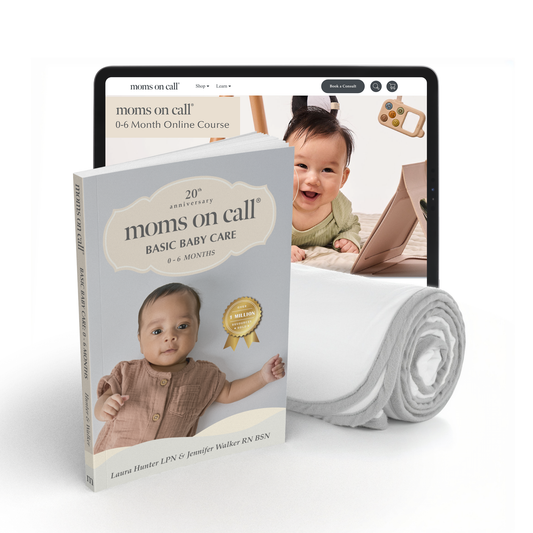Becoming a mother comes with extreme physiological changes, sleep deprivation, and an entirely new role in life. Yet, it still comes as a surprise to people that postpartum women struggle with their mental health. My work is dedicated to raising awareness and offering support to mothers and their families as they navigate this transition to parenthood.
PMAD: A Perinatal Mood or Anxiety Disorder, Postpartum Depression
Nearly 80 percent of new mothers experience down days, commonly called “The Baby Blues.” But for an estimated 20 percent of moms, these feelings can signal that they face the most common complication for pregnant and postpartum women: a perinatal mood or anxiety disorder (referred to as a “PMAD”). PMADs can include a variety of disorders, including postpartum depression, postpartum anxiety, postpartum obsessive-compulsive disorder, post-traumatic stress disorder, and rarely, postpartum psychosis. While giving birth is often the triggering event for a perinatal mood disorder, please note that symptoms can occur anytime during pregnancy. Also, adoptive mothers, as well as new Dads, may notice they are experiencing symptoms.
Symptoms can include:
- Frequent crying
- Sleep and appetite changes
- Feelings of loneliness, sadness, helplessness
- Frequent mood swings
- Repetitive, sometimes scary thoughts that won’t go away
- Anger, frustration, irritability
- Difficulty bonding with baby
- Anxiety, panic, excessive worry
- Feelings of being trapped
- Fear of being left alone with the baby
- Sense of doom
- Lack of interest in life, feeling sluggish, fatigued, exhausted
- Difficulty making decisions or discerning what’s best for you or your baby
- Feeling overwhelmed
- Feeling speeded up or wired
- Thoughts of hurting yourself or those around you
I notice these symptoms when I hear women in my office say things like: “I feel like this was the biggest mistake of my life,” “every day feels like 100 hours, and I just watch the clock,” and “I wish I’d never had this baby….” Shame about having these thoughts and feelings can keep women from seeking help, but consider that these may be your symptoms talking. Having a new baby is hard, but it shouldn’t be miserable. Your life shouldn’t feel over, just profoundly changed.
These symptoms can also manifest in a client’s indecision and feeling overwhelmed. For example, my clients who obsess over following a suggested schedule, struggle with breastfeeding, or guilt over not breastfeeding. Who revisit and ruminate over decisions or have an exceptionally hard time adjusting if the day doesn’t go exactly as planned. Sometimes this is just a Mom’s personality and isn’t a symptom, but if this resonates with you and you are having a hard time with basic functioning, consider that you may want to consult a professional for additional help and support.
Finally, women in the throes of postpartum anxiety can’t sleep. And sleep is hard to get with a newborn. So I like to ask: “Given the opportunity to sleep, can you sleep?” if the answer is “no,” and you are feeling speeded up, irritable, and anxious, you might be experiencing anxiety that warrants treatment. The scenario can look like this: Baby fed and asleep at night, Mom in bed wide awake, exhausted, with racing thoughts or racing heart…not just once, but again and again.
Let me share some other information that can be helpful to know.
What Factors Increase My Chance of Developing a PMAD?
- Personal or family history of depression, obsessive-compulsive disorder, anxiety or panic disorder, bipolar disorder, or any other emotional illness, including pregnancy or postpartum mood disorders
- History of severe Premenstrual Syndrome (PMS)
- Unplanned or unwanted pregnancy
- Thyroid disease or other chronic illnesses
- Lack of support from family or friends
- High level of physical, emotional, or financial stress
- History of sexual, verbal, physical, or mental abuse
- Pregnancy complications and/or a traumatic delivery
- History of infertility
- Chronic sleep deprivation
- Abrupt weaning from breastfeeding, breastfeeding challenges
- History of miscarriages or pregnancy losses
What can I do to help myself avoid Postpartum Depression (PMAD) or feel better if I think I am experiencing it?
- FIRST: Self-help measures are essential, but do not delay getting additional treatment if needed. The longer you wait to treat a perinatal mood disorder, the harder it is to treat.
- Ask for help. Being a mom is hard work. New and expectant mothers cannot do it all. Ask for help and support from loved ones.
- Educate yourself. Learn the factors that increase the risk of developing PMAD and be aware of the signs and symptoms. Knowledge is power.
- Educate your loved ones about PMADs. Share the information you are learning here. They must be aware of the signs and symptoms.
- Eat a balanced diet. Take your prenatal vitamins and ensure you get various foods in your diet. Avoid high-fat and high-sugar foods.
- Limit caffeine and AVOID alcohol altogether (Alcohol throws gas on the fire of anxiety. Not popular to say, but essential).
- Exercise is important. Walking 3-4 days per week benefits your mental health.
- Get plenty of sleep. Take a nap when you can. Listen to your body and rest when it tells you to rest. I often recommend Mom’s on Call for this exact reason – It allows predictability to the day (nap windows for Mom!) AND supports good rest for the baby, which means good rest for Mom and Dad!
- Take time for yourself.
Support for Postpartum Depression
There are excellent resources (online support groups, information, reading) and a directory of clinicians in your area that can be found on Postpartum Support International’s website, www.postpartum.net. Your pediatrician or OBGYN can also be a resource for local support (sometimes, not always).
As I often say to those I’m talking with, I love you; keep going. As bad as you feel, I want you to know you are loved. Some people care and want you to feel better. And keep going because no matter what, you are worth the effort and work it may take to feel better.
Kate Ferguson is the founder of Kate Ferguson Therapy and Associates in Atlanta, GA. Her website is www.katefergusontherapy.com and you can also follow her on Instagram @katefergusontherapy
Be sure to follow us on Instagram and Facebook to stay up-to-date with our content! Also, visit momsoncall.com to check out all the resources we offer.
























